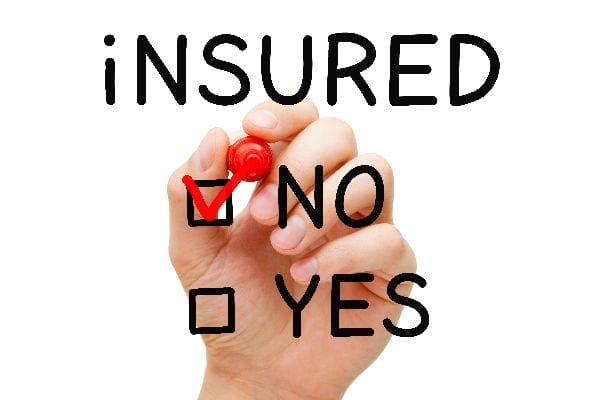
Exact numbers are hard to determine, but most estimates place the number of uninsured drivers at about one in ten. Perhaps twice as many motorists in the Gopher State are dangerously uninsured. Minnesota has one of the lowest auto insurance minimums in the country. In a wrongful death or other catastrophic injury car crash case, damages could be hundreds of thousands of dollars, or even millions of dollars. Many vehicle owners do not have nearly that much coverage.
In these situations, Buffalo lawyers can file collections claims against the individual tortfeasors (negligent drivers). But such procedures are time-consuming to say the least. Additionally, many Minnesotans basically live hand to mouth, so they are effectively judgement-proof.
Fortunately, Minnesota law gives Buffalo lawyers many options in terms of vicarious liability. These theories often give victim/plaintiffs an additional source of recovery.
Employer Liability
The respondeat superior (“Let the master answer”) doctrine usually applies if the tortfeasor was a taxi driver, truck driver, bus driver, or even an Uber driver.
These commercial drivers usually have a higher duty of care than noncommercial drivers. This higher duty is especially applicable in passenger injury cases. Bus drivers, taxi drivers, and other individuals who transport people for money are basically insurers of safe conduct. They must driver very, very carefully and also ensure that the passengers are safe while on board (e.g. no fights or other dangerous conditions).
Employers, in addition to the tortfeasors, are also responsible for damages in these cases. Liability attaches if:
- Employee: Almost all commercial drivers are “employees” for negligence purposes, even if the employer claims that they are unpaid interns, independent contractors, owner-operators, or even unpaid volunteers. Employers control all these individuals in terms of things like hours worked, compensation paid (or not paid), job duties, and so forth. Such control is all that’s required. Many courts are embracing this broad definition in other contexts as well, due to the rise of the gig economy.
- Scope of Employment: This phrase is very broadly defined as well. If an act benefits the employer in any way, Buffalo lawyers can argue that the act was within the scope of employment. That even includes activities like driving a vehicle with the company logo on it. In these cases, the employer benefits from the free advertising.
- Foreseeability: The victim/plaintiff’s injury must be a foreseeable result of the crash. A medical mistake during surgery is not a foreseeable result of a car crash.
Respondeat superior applies in almost all commercial car crash cases. There are other employer liability theories that Buffalo lawyers can use as well, such as negligent supervision or negligent hiring.
Alcohol Provider Liability
Impairment begins with the first drink, so alcohol is tied to many Buffalo car crashes. Of course, it is the individual who choses to drink and drive. However, alcohol providers also have a hand in this problem. Buffalo lawyers fight for both compensation and justice for victims. To get both, many providers need to change the way they do business. So, Minnesota has a very strong dram shop law. Grocery stores, bars, restaurants, and other providers are liable for damages if their impaired patrons cause injury. The dram shop law applies if there was an illegal sale.
- Under 21: Strict liability usually applies here. It may be a defense if the buyer showed a very convincing fake ID, but the old “s/he looked older” defense almost never works.
- Obviously Intoxicated: To prove intoxication, the victim/plaintiff may introduce circumstantial evidence, such as bloodshot eyes or an odor of alcohol. The victim/plaintiff must establish this element by a preponderance of the evidence (more likely than not).
- Foreseeable: Generally, it is foreseeable that a tortfeasor will open a can, bottle, or other package of alcohol and drink it on the way home. However, such arguments may be an uphill climb for Buffalo lawyers.
Social host liability may be available as well, either through the dram shop law or another negligence theory, such as negligent undertaking.
Owner Liability
Noncommercial owner liability is always an issue if the tortfeasor was under 18. Moreover, many tortfeasors borrow someone else’s car. If the owner knew the tortfeasor was incompetent, the owner may be responsible for damages. Evidence of incompetency could be:
- Direct: People with no drivers’ licenses are incompetent as a matter of law. The same thing applies if the tortfeasor drives in violation of a known restriction (g. no night driving).
- Circumstantial: If the tortfeasor has a poor driving record, and the owner knows about that fact, liability may also attach. Furthermore, some beginning drivers are perfectly competent during the day, but they should not drive at night or in unfamiliar places.
Commercial negligent entrustment cases work a little differently because of the Graves Amendment.
Call Today To Speak With A Buffalo Minnesota Lawyer From Carlson & Jones
The tortfeasor may not be the only party that is liable for damages. For a free consultation with an experienced personal injury lawyer in Buffalo, contact Carlson & Jones, P.A. Home and hospital visits are available.

